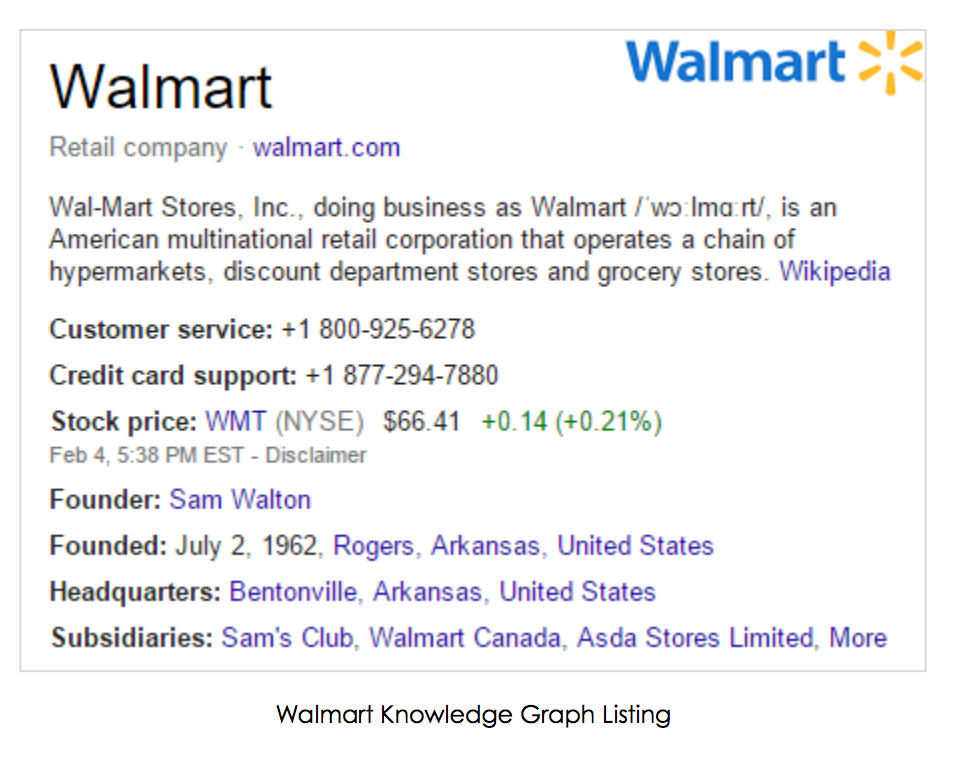We have all witnessed search results with auxiliary features like prices, reviews, recipes & events incorporated with the search listings. These eye-catching listings are called Rich Snippets by Google.
The striking Rich Snippets entice visitors and boost traffic to your website. And this high traffic sends a signal to Google that the listing is relevant to the users.
It is very likely that you already know what Google Knowledge Graph looks like. But in case you don’t, just search for any alpha company & you will see every single detail about the company listed on the right side of the search result.
All the features that make a search listing look “Good”, such as Rich Snippets & Knowledge Graph can be scored by adding the Schema formatted Structured Data of your website content.
Schema markup allows you to:
– Bring forth search results Rich Snippets, Breadcrumbs, live blogs & search boxes.
– Drive data into Google’s Knowledge Graph, Maps & even results.
– Make your content easier to understated for the search engine.
Structured Data Markup allows search engines to interpret content more efficiently & generate Rich Snippets.
Since the very beginning, programmers have been trying to understand human language using computers; but it is way too hard. For instance, we use so many different formats for date & time that it can be difficult to interpret.
– February 1st, 2016
– 1st February, 2016
– Feb 1, 2016
– 02-1-2016
– 1/2/16
Confusing, isn’t it? Search engines also face the same problem.
Despite the fact that search engineers have done a tremendous job in this regard, they still need help & structured data does exactly that.
History
Google started to use Structured Data Markup in 2009. They continually developed their support to multiple formats as technology advanced. In 2011, all the major search engines, including Bing, Google & Yahoo agreed to support one standard vocabulary named Schema, which consists of different standard options such as Microdata, RDFa & JSON-LD.
***You may want to bookmark the website “Schema.org”, as it has all the supported Structured Data codes.
Coming back to the date & time instance, Schema requires them to be in a single format, specifically ISO 8601. (2016-02-10T22:00:00.)
In daily use of Structured Data Markup, the Schema Markup that uses ISO 8601 time/date format for machines will look like this& for humans it will be Wednesday Night, February 10th.



